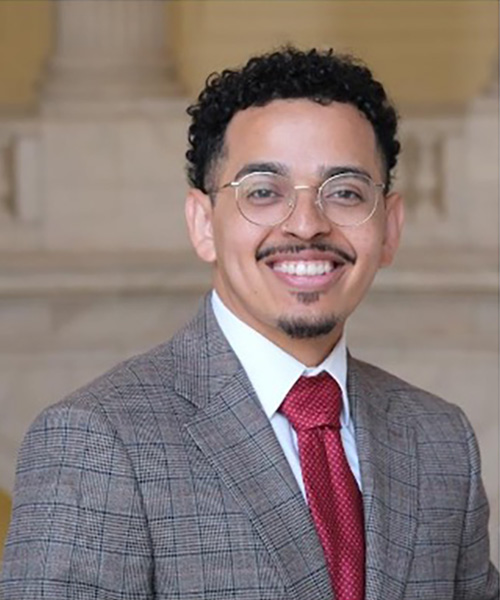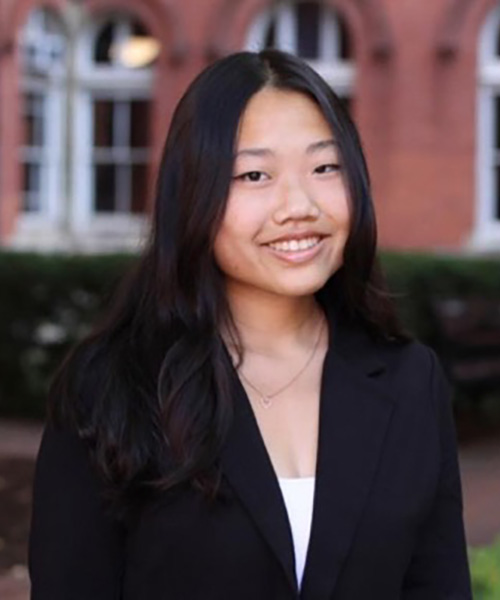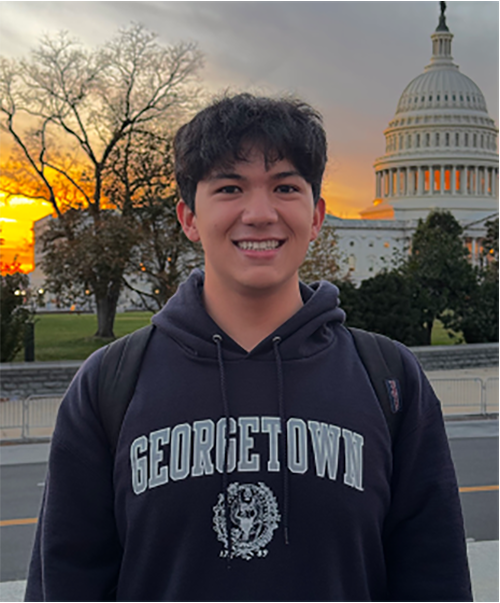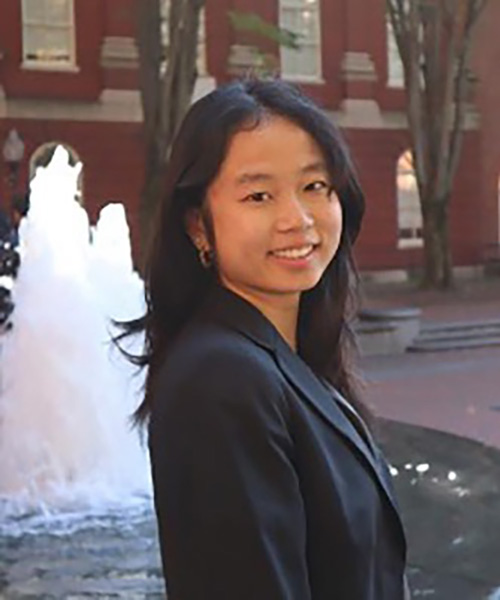
The People Beyond the Talking Points
Bennie Chang | May 31, 2025
Responding To: Georgetown Students Reflect on Student Dialogue in Beijing and Hong Kong
Tiffany Cowan
In May 2025, I had the opportunity to visit mainland China for the first time with the U.S.-China Student Dialogue. While I was fortunate enough to study abroad in Taiwan, I had only ever studied China from afar. I realized I’d spent years studying cross-strait relations without ever crossing the Taiwan Strait.
During the Beijing leg of our trip, we visited the National Development and Reform Commission (NDRC), China’seconomic planning agency. Georgetown University students learned about U.S.-China trade relations, Chinese efforts to address climate change, and Xi Jinping’s concept of “new quality productive forces.” As NDRC officials fielded questions that sometimes pushed boundaries—a delightful sign that Georgetown students hadn’t left the American spirit of free speech back in Washington, DC—it was interesting to see how adeptly they navigated tough questions with the strategic cadence of Communist Party-speak.
In Hong Kong, we visited the South China Morning Post’s headquarters and the American Chamber of Commerce. There, we learned about Hong Kong’s unique role as a special administrative region. One of my takeaways was about the idea of “one country, two systems": China needs Hong Kong to stay Hong Kong because they need access to the international companies, capital, talent, and open market that run by the same rules as Western economies.
My conversations with students from Tsinghua University and Hong Kong University were some of the most memorable moments of the program. As we discussed global issues such as Taiwan and the Russia-Ukraine war, to even more grounded topics like our experiences growing up in our respective countries, I couldn’t help but think how wonderfully rare it was for American and Chinese citizens to connect so meaningfully in a world that conditions us to view one another as adversaries.
What struck me most about our interactions was how much more Chinese students seemed to know about us Americans than we know about them. While the Tsinghua students were well-versed in American pop culture, literate in our bestsellers, and up-to-date on our TV shows, it wasn’t until after I brought Swedish Fish and Sour Patch Kids as a 伴手礼 (a small gift to bring when visiting) that I discovered Chinese people typically don’t eat super sugary candy. During our group project work time, I asked one of the Tsinghua students about the kinds of sources they consume U.S. news from. I had only expected them to recall state-controlled media, but when they rattled off familiar names such as Reuters and The New York Times, I found myself pleasantly mistaken. I think this goes to show how in a country with virtually unrestricted internet access, we can all do a better job trying to learn about our fellow global citizens—especially when they are finding ways around the Great Firewall to understand us.
In fairness, this is easier said than done. For instance, my foreign-registered WeChat account did not have any access to the news and issued warnings to mainland China-based users about my unverified status. This is why programs like the U.S.-China Student Dialogue are so important. They connect students who otherwise would have never crossed paths, overcoming both borders and firewalls.
Tiffany Cowan (SFS’25) is a student at Georgetown University studying international politics.

Bennie Chang | May 31, 2025

Daniel Castro Bonilla | May 31, 2025

Isabella Stratta | May 31, 2025

Maggie Yang | May 31, 2025

Patrick Coggin | May 31, 2025

Raghav Akula | May 31, 2025

Zifei Zhao | May 31, 2025

Drew Zacharias | May 31, 2025

Luke Hughes | May 31, 2025